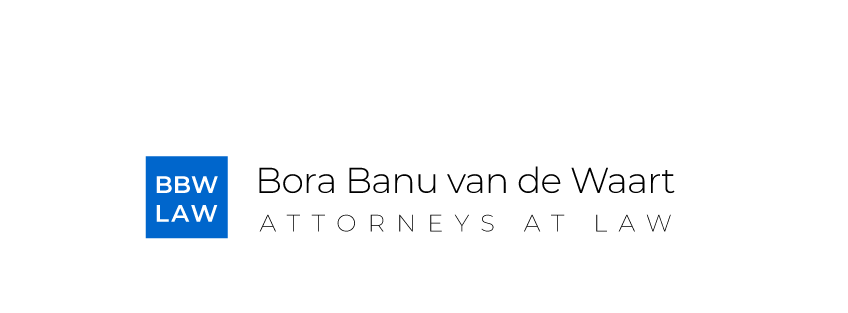Legal News by BBW LAW, March 2023
Fri | 31.03.2023
Legal
LEGAL NEWS
EMPLOYMENT LAW
New legal provisions designating the collective negotiation sectors
Government Decision 171/2023 (GD 171/2023) on the establishment of collective bargaining sectors and the related NACE codes entered into force as of 7 March 2023.
Following the entry into force of the new law on social dialogue (Law 367/2022) providing that collective bargaining is compulsory, including at collective bargaining sector level, GD 171/2023 was adopted to define the collective bargaining sectors.
The classification into a collective bargaining sector is made according to the main NACE code (in Romanian cod CAEN); the sectors and NACE codes are provided in the Annex to GD 171/2023.
Companies are able to request classification in one of these sectors under certain conditions – for instance if co’s activities fall into the scope of more than one collective bargaining sector.
New days off recognized at national level
The Labour Code was amended by Law 52/2023 effective as of 8 March 2023.
The new law adds two additional days off recognized at national level, namely:
– 6 January – in Romanian ‘Botezul Domnului’
– 7 January – in Romanian ‘Sf. Ioan Botezătorul’
EU LAW
Market surveillance & product conformity
Ordinance 20/2023 on the establishment of measures for the application of Regulation (EU) 2019/1.020 of the European Parliament and of the Council of 20 June 2019 on market surveillance and product conformity and amending Directive 2004/42/EC and Regulations (EC) no. 765/2008 and (EU) no. 305/2011, as well as for the modification and completion of some normative acts is effective as of 31 January 2023.
- Ways to implement the Regulation are provided, in the sense that the Romanian Customs Authority is designated as the authority responsible for the control of products entering the European Union market, respectively the Ministry of Economy as the national authority for coordinating the application of the provisions of the Regulations.
- It also provides for the obligation of the market surveillance authorities to transmit the information to the European Commission through the National Authority for Consumer Protection (ANPC is designated as the national contact point for the Rapid Information Exchange System – RAPEX).
- The Customs Authority must ensure that all products entering the country are compliant / do not pose a risk to the population. The declaration of conformity is requested for each product, and the non-presentation of the declaration / the presentation of an inappropriate declaration represents the premise of non-conformity. Also, each product must have technical documentation.
- The market surveillance authorities must conclude cooperation agreements with the Romanian Customs Authority, which ensure the exchange of information in order to avoid the introduction of non-compliant products on the market. The same authorities can make public the information regarding the decisions made regarding non-compliant products.
REAL ESTATE
New Land Book Regulation
Order 600/2023 for the approval of the Regulation of reception and registration in the cadastre and land book entered into force as of 14 February 2023 (New Regulation), effectively replacing the previous regulation adopted by Order 700/2014.
The New Regulation aims at aligning the Land Book rules with other legal provisions – such as Law 7/1996 for cadastre and real estate publicity and Law no. 50/1991 on the authorization of construction works, as well as aiding in the digitization process of the Land Book processes. There will likely be initial delays in implementation due to significant amendments to workflows and procedures.
SOME NEW ASPECTS
- Among the rights that may be mentioned (in Romanian notate) in a real estate’s Land Book are now included ‘the legal usage right’ and ‘the right-of-way’ provided by Energy Law 123/2012.
- The registration of real estate rights granted for only a part of a property (including apartments that are part of a condominium) may be achieved through “interrupted stream”. However, the “technical information update stream” still applies, leaving it unclear whether the “interrupted stream” procedure replaces the previous procedure or if the beneficiary can choose either of the two.
- The file required for registering real estate rights must now also include (1) an analytical calculation of the affected area, (2) a copy of the plan that served as the basis for the allocation of the cadastral number of the real estate (applicable to land registered in the Land Book without geometry), and (3) the location and delimitation plan (PAD) of the property, in relation to the affected area.
- The New Regulation clarifies that removal of a real estate right burdening a property only requires the prior consent of the holders of the specific rights subject to removal, so from registered persons with an interest in the specific right being removed.
- The documentation required for the registration of real estate rights will no longer need to include a copy of the Land Book excerpt nor the coordinate inventory of station points and radiated points.
- The urbanism certificate is no longer required (for the Land Book procedure) when demerging land for purposes other than construction if the owner provides a statement confirming that the de-merger is not for construction purposes.
- The registration of ownership rights after company merger/ separations now follows the same requirements as those specified in Law no. 7/1996 – companies no longer need to provide an authenticated shareholders’ resolution, but, instead, an authenticated merger or separation project.
- When a real estate right is de-registered ex officio, there is no longer a requirement to register a record with the responsible Land Book office to prove the existence of such de-registration.
- For cancelling an ownership title through a final court decision, the Land Book now requires, besides the court decision, an acknowledgment from the County Commission that the ownership title was cancelled in court.
MEDICAL MALPRACTICE
Access to the deceased patient’s medical information
Law 46/2003 on patient’s rights was amended by way of Government Ordinance 6/2023 (GO 6/2023) which entered into force as of 2 March 2023.
The new enactment targets one amendment: Relatives can now access a deceased patient’s medical information even if the patient was unable to provide consent.
Such medical information includes: the results of the investigations/tests, the diagnosis, the prognosis, the treatment and personal data.
The relatives who may now receive such information upon request are (in the following order):
- the surviving spouse;
- ascendants/legal guardian;
- collateral relatives up to and including the fourth degree
This article is provided by our Legal Partner BBW LAW l BORA BANU van de WAART.
2025
-
November (1)
-
October (1)
-
September (1)
-
July (1)
-
June (1)
-
April (1)
-
February (2)
-
January (1)
2024
-
November (1)
-
October (1)
-
July (1)
-
May (1)
-
March (1)
-
February (1)
-
January (1)
2023
-
November (1)
-
September (2)
-
August (2)
-
June (1)
-
May (1)
-
April (2)
-
March (1)
-
February (2)
-
January (2)
2022
-
December (3)
-
November (4)
-
October (3)
-
September (4)
-
August (3)
-
July (6)
-
June (4)
-
May (4)
-
April (8)
- Marketing News by diARK - April 2022
- Finance News by Mazars Romania - April 2022
- Experience the Perfect Chauffeur Transfer with David Intercar
- Mobility News by Business Lease - April 2022
- NRCC MEMBER IN SPOTLIGHT, WOLTERS KLUWER
- Crowe Romania and DeclaratiaUnica.ro engage in the automation of the single return form and the offering of personalized consultancy
- Cryptocurrency News by Bitcoin Romania, April 2022
- Legal News by BBW LAW - April 2022
-
March (6)
-
February (4)
-
January (5)
2021
-
December (3)
-
November (4)
-
October (2)
-
September (2)
-
August (1)
-
July (5)
-
June (3)
-
May (5)
-
April (4)
-
March (7)
- Cryptocurrency News by Bitcoin Romania, April 2021
- HR News by CNA International Executive Search Romania, March
- Real Estate News by CTP Invest, March 2021
- Sale-Purchase of Agricultural Land Located Outside Build-Up Areas
- MEET THE NRCC BOARD CANDIDATES 2021
- Fleet Management – Complete Makeover or Small Adjustments?
- Cryptocurrency News by Bitcoin Romania, March 2021
-
February (5)
-
January (6)
2020
-
December (2)
-
October (2)
-
September (3)
-
August (2)
-
July (6)
- NRCC Member in Spotlight Interview - Autonom
- Insolvency Proceedings: New Rules
- Member in Spotlight, UniCredit Bank
- Financing opportunities overview for large enterprises, SMEs and other organizations
- Companies: Simplification of Formalities
- Call for Leaders | What is your readiness score to benefit from the EU SURE initiative?
-
June (5)
-
May (8)
- The State of Alert. New rules for the collective proceedings
- The Retail Industry
- EU grants up to 6 Mil Euro for SME-s investment projects
- Member in spotlight, Heisterkamp Transportation Solutions
- State of Alert...What Is New
- The forced transformation of the automotive industry – Mazars analysis
- State of Alert in Romania
- Reducing the Impact of the Pandemic
-
April (6)
-
March (2)
2019
-
November (2)
-
July (1)
-
June (1)
-
March (2)
-
January (1)
2018
-
October (2)
-
September (1)
-
August (1)
-
July (3)
-
June (2)
-
May (1)
-
April (1)
-
March (3)
-
February (13)
- NRCC Elections 2018 - Elena Badea
- NRCC Elections 2018 - Loreda Dragomir
- NRCC Elections 2018 - Simina Fodor
- NRCC Elections 2018 - Manuel Herraiz Orti
- NRCC Elections 2018 - Tom Leene
- NRCC Elections 2018 - Mircea Moga
- NRCC Elections 2018 - Ronald Oort
- NRCC Elections 2018 - Razvan Pascu
- NRCC Elections 2018 - Alexandru Popescu
- NRCC Elections 2018 - Mihaela Tudor
- NRCC Elections 2018 - Loredana Van de Waart
- NRCC Elections 2018 - Edwin Warmerdam
- NRCC Elections 2018 - Philip Aarsman
2017
-
November (1)
-
September (1)
-
August (2)
-
May (1)
-
April (2)
-
March (1)
2016
-
November (1)
-
September (8)
-
June (1)
-
February (2)








